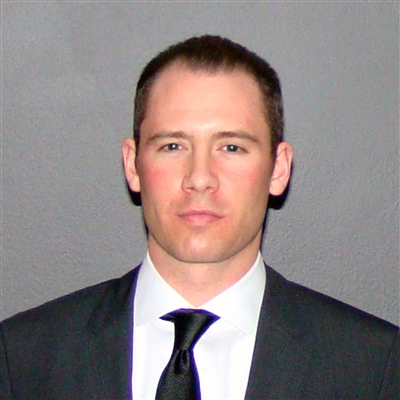Ryan Dooley

Class Year:
2005
Job Title:
Architect
Areas of Study:
History
When you arrived at Lake Forest College, did you know you wanted to major in history?
No. History is a subject I always enjoyed and so I kept finding myself taking a lot of History courses. Early on I had courses with Pericles Georges and we developed a good rapport. He reached out to me after a paper I wrote for him freshman year asking me to take another course with him. My decision to major in History really stemmed from wanting to study a subject I enjoyed and having developed a relationship with a professor in that department.
Did you double-major? If so, how did History complement your other area of study?
I did not double major, but I minored in Economics. I also went on to get a Master’s degree in Architecture. I have always thought that learning how to “do” History has helped me. History teaches you how to first find a problem that is not defined then dissect and understand it, and then articulate an answer. It teaches the art of thinking when things are ambiguous and there is no set answer.
Can you describe a History professor who had a particular influence on you?
Professor Pericles Georges was my most influential teacher. The final papers I wrote for him, rather than the specifics of his day-to-day courses, are what stick out the most. He taught me that you have to understand the mentality of your subject, and the entire context that has built that mentality, in order to get to an actual understanding of the events in question. That made me dig deeper in my research, it made my work more interesting, creative, and just plain better. That methodology is something I still think about and utilize in my job today.
Was there a particular piece of work that you remember as especially rewarding or challenging?
I did a paper called Politics in Stone, which was about how the Third Reich utilized their architecture program to manifest their National Socialist ideology. Basically it was about the effect architecture has on people. I didn’t know I was going into architecture at the time I wrote it, but that question has stuck with me. Since getting into architecture I have done a lot of research on the neurological implications of architecture, which has given me a lot of interesting opportunities, such as the chance to give a TED talk. I look back at that paper as the beginning of this research in which I am still engaged.
Please describe your jobs and/or graduate study after college.
I have my Master’s in Architecture and work as an architect. I have worked as a construction consultant, and have implemented design technology for an engineering firm.
Many of our students worry that traditional liberal arts majors (particularly in the humanities) will not translate to job skills. Share your advice.
It is a logical concern. I feel I have gained skills from my History major that really helped me in other subjects, specifically how to really discover, understand, and address problems at a deeper level. If you enjoy History and also want something practical, double major. You will likely find there is a good synergy with History and other fields; it will help you be more creative in those practical fields. I think the size of Lake Forest and access to your professors will help you manage the work.
How do the skills and knowledge you acquired in your history major inform your day-to-day work?
I have always thought the act of doing History is the same as the act of doing architecture. You have to find an undefined problem, analyze it, understand it, and then articulate the solution. The solution is just manifested differently. In talking to employers I think you emphasize that process of thinking and analyzing problems that are not clearly stated. This is a valuable skill. If the question is straightforward, and there is only one answer, then you better be able to get it right. When problems are more ambiguous, it requires a different way of thinking. Studying History helps you develop this way of thinking.
Is there anything else you would like to add?
I do believe in the value of a History major. But I understand the “practical major” concern. I think the department should encourage double majors. Studying economic trends and forecasting policy will make better Economics or Politics majors. Same for any number of fields of study: I think bringing History to advanced mathematics, physics, etc. will make for a better all-around understanding of subjects. Double majoring will also yield more creative thinking in all disciplines. The department should take the lead on this.

